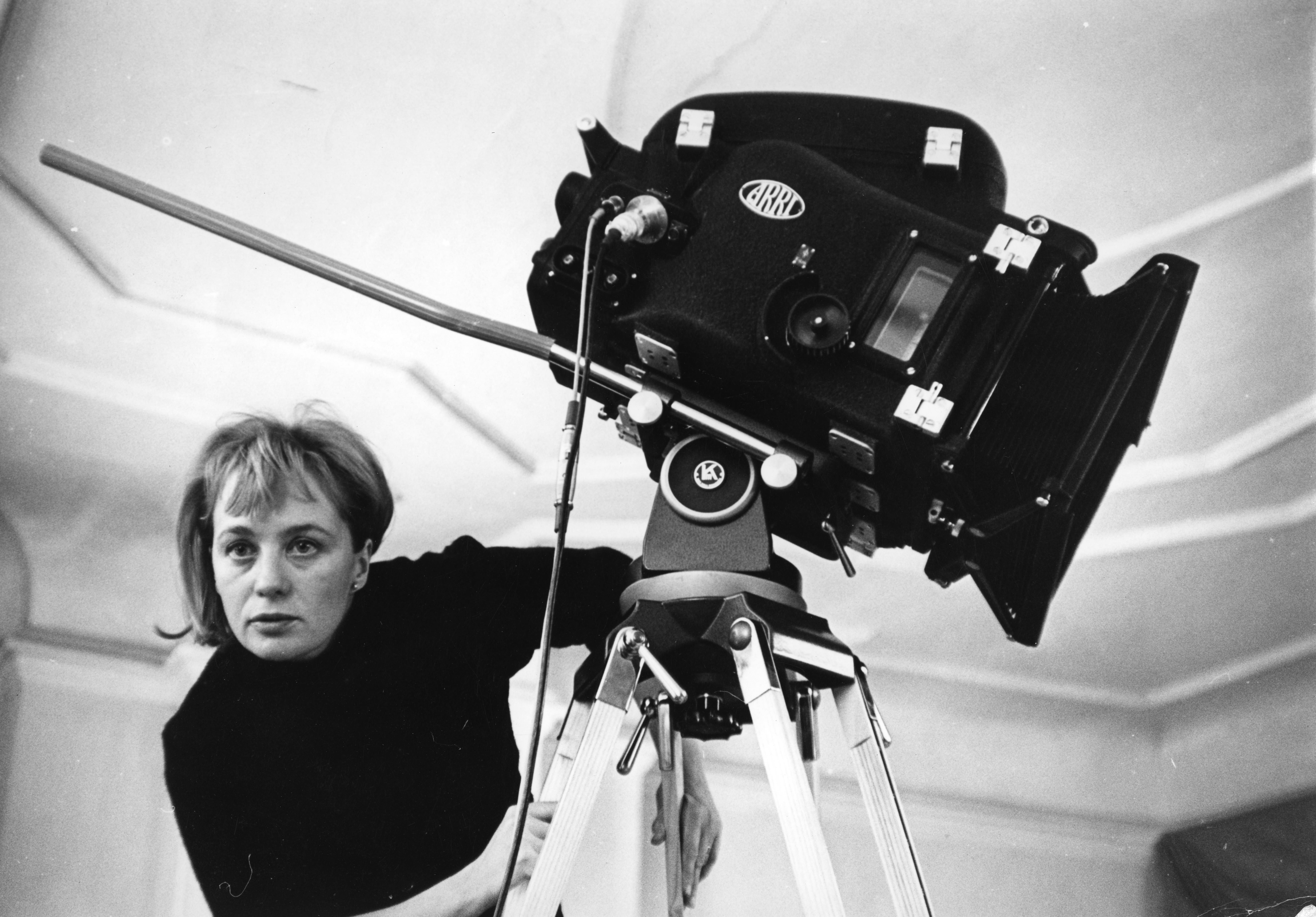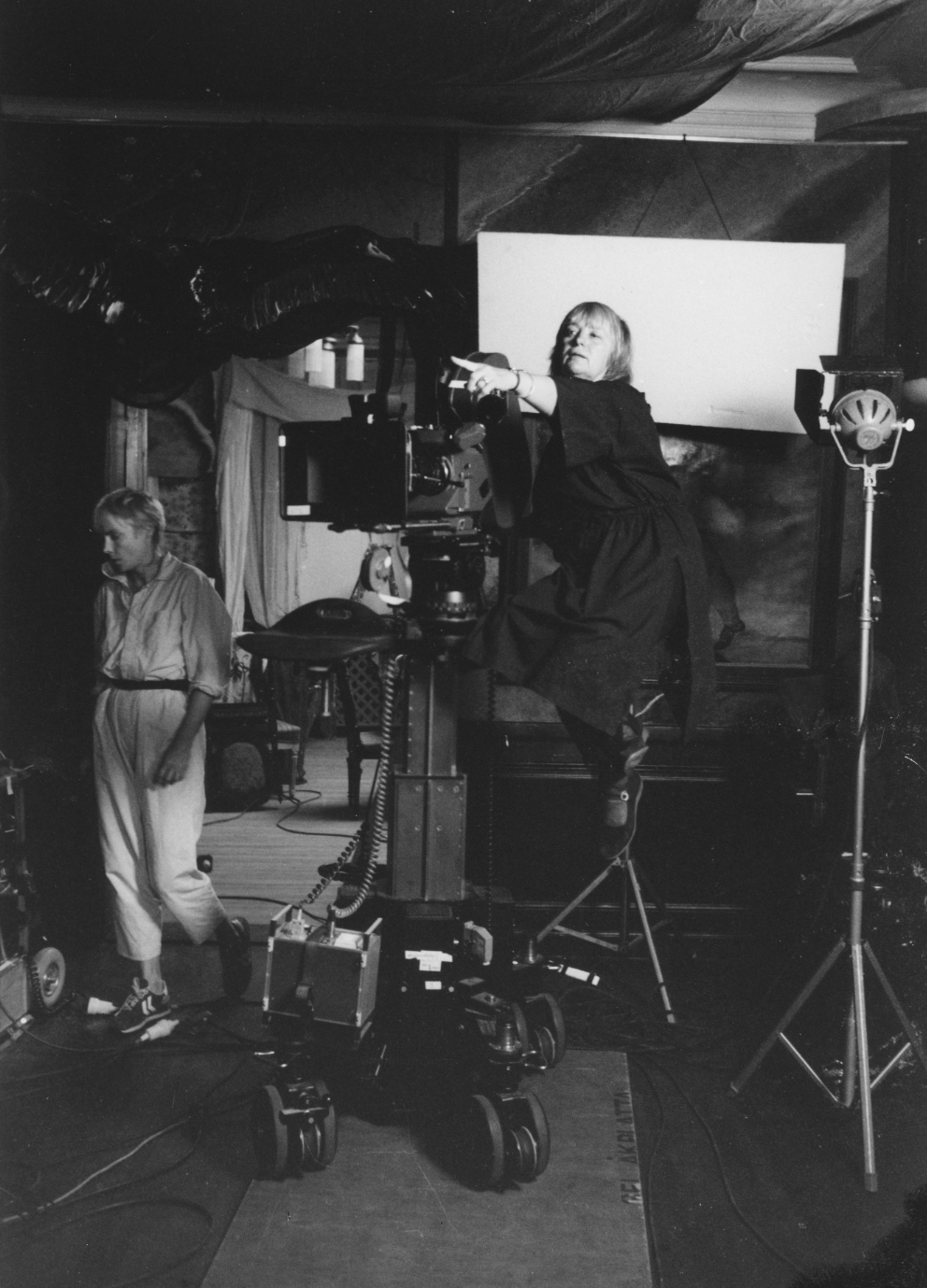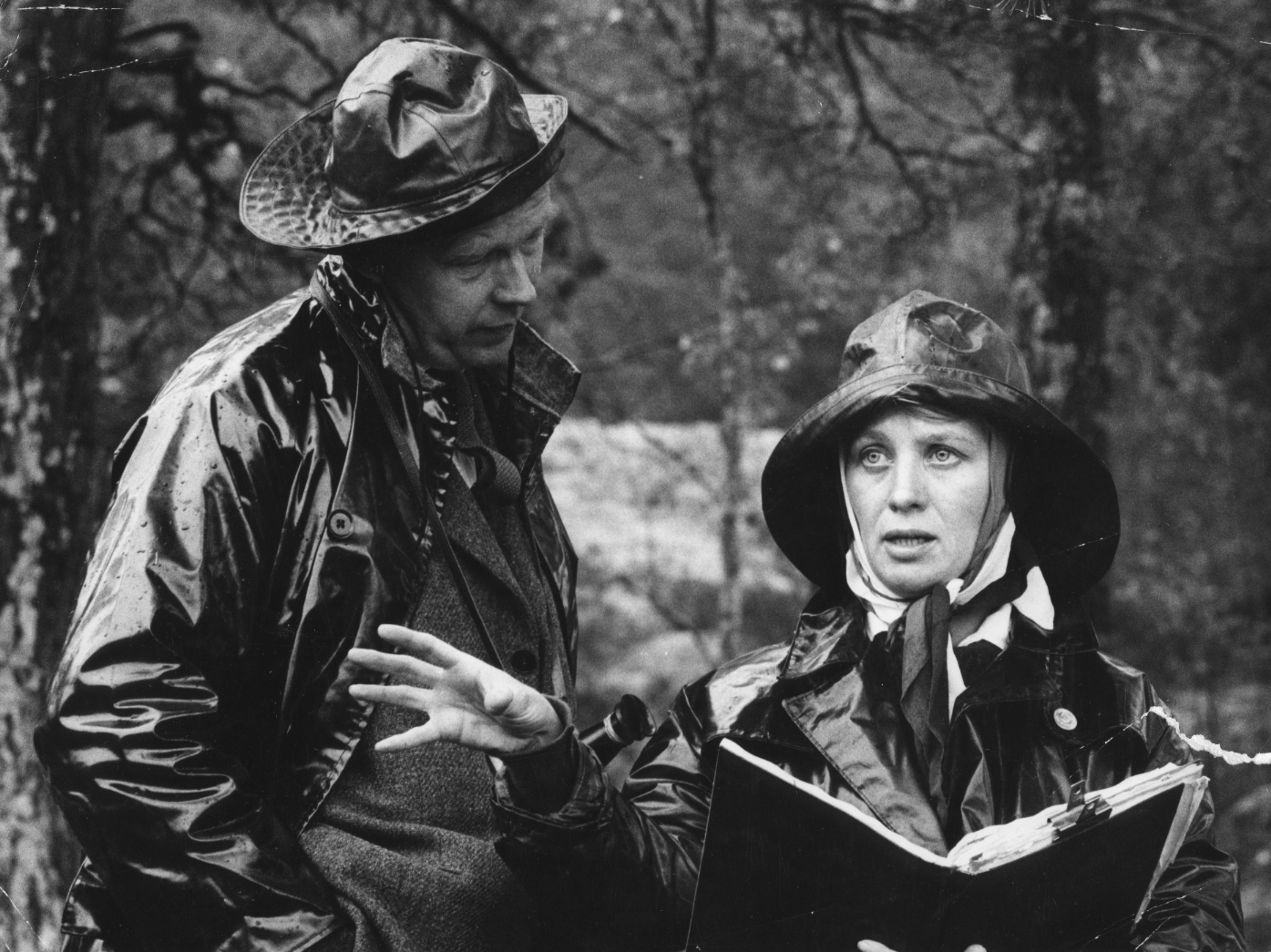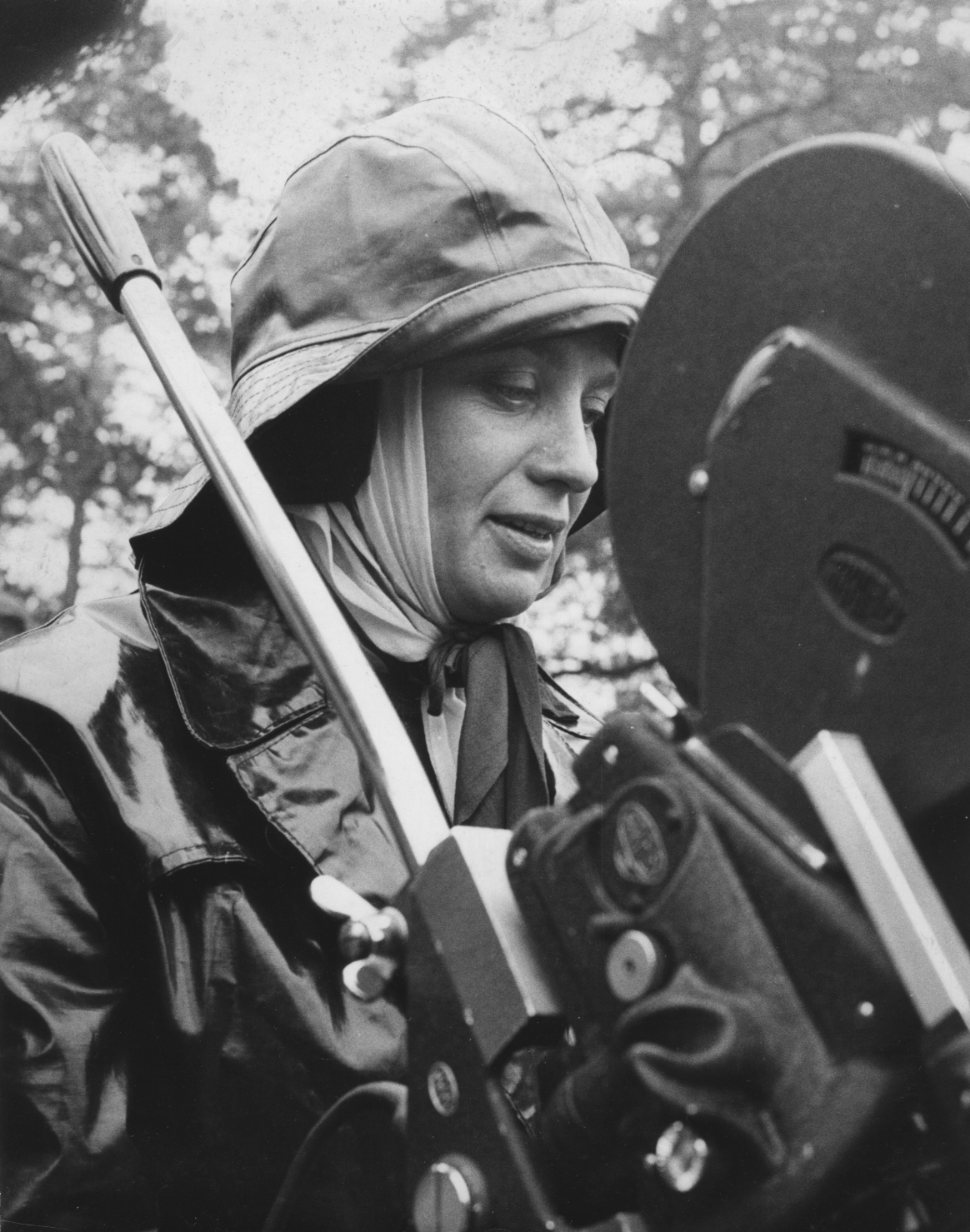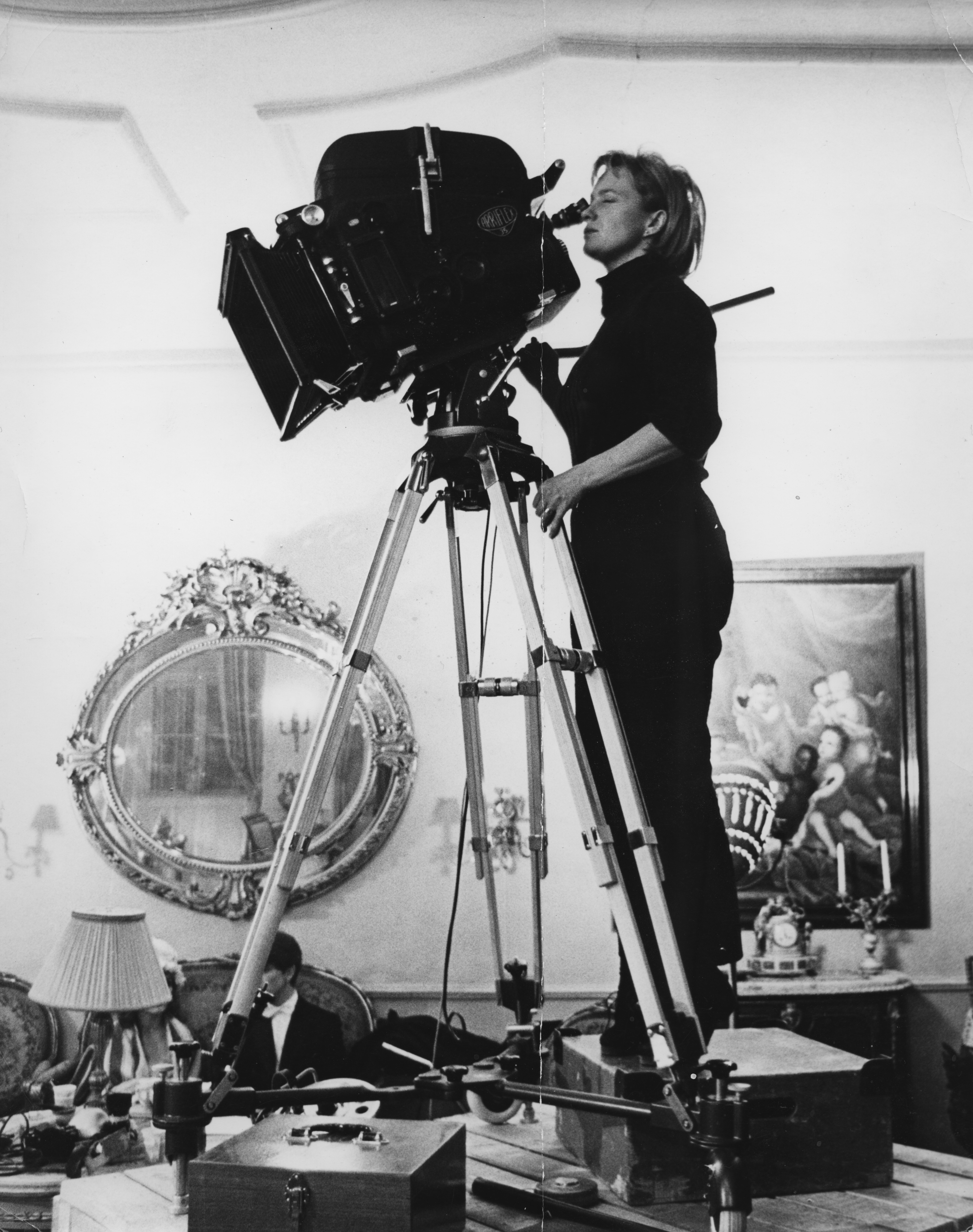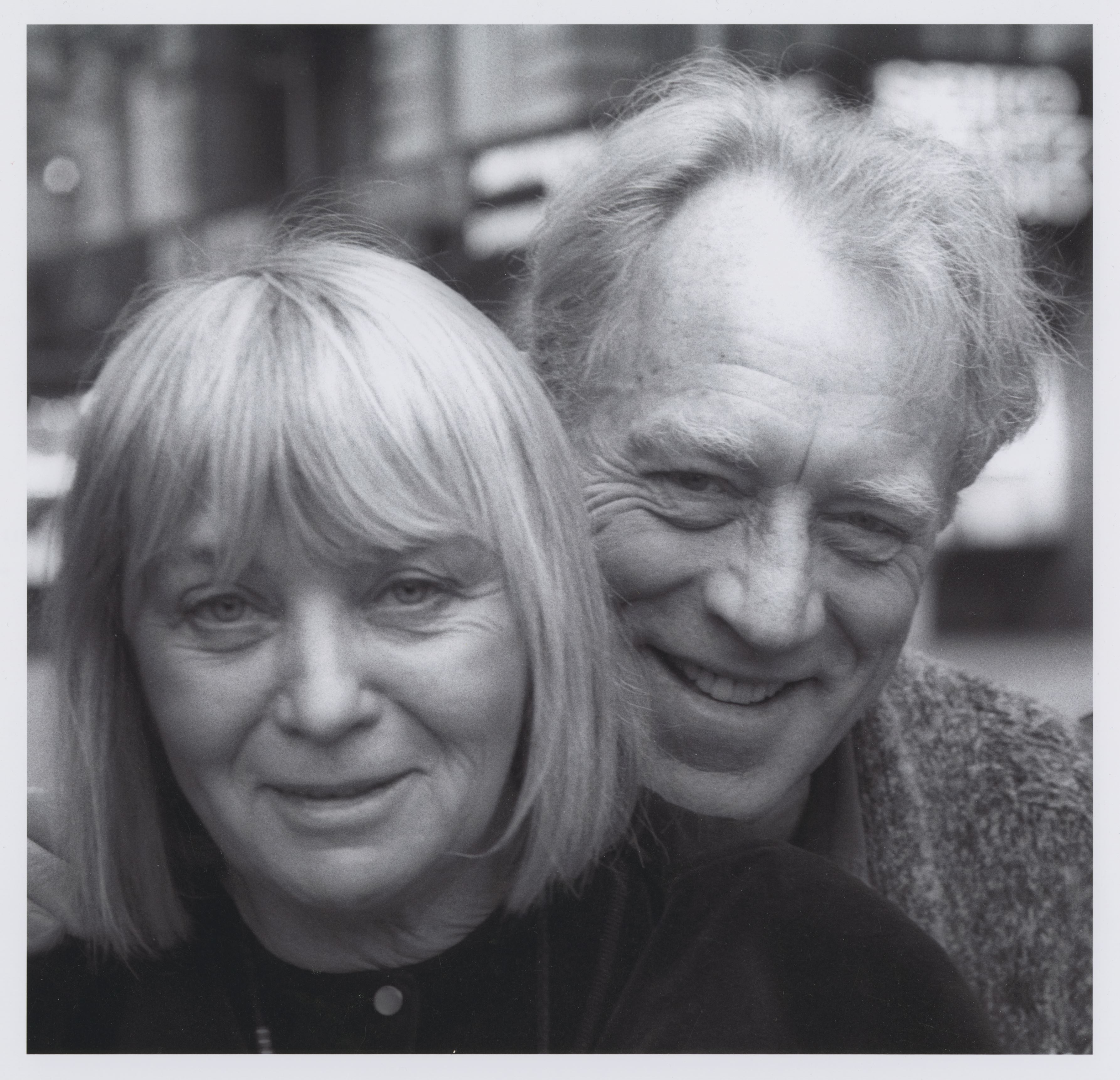Already in her feature debut Loving Couples (Älskande par, 1964), Mai Zetterling emanates as a wilful and highly opinionated creator of rich images with more in common with filmmakers like Luis Buñuel, Alf Sjöberg and Ingmar Bergman than with political social realists of the 1960s and 70s. Fittingly, it was in Frenzy (Hets, 1944), directed by Sjöberg and scripted by Bergman, that Zetterling got her acting breakthrough. She had further success in the rustic drama Sunshine Follows Rain (Driver dagg, faller regn, 1946), which resulted in international offers for both her and co-star Alf Kjellin. Zetterling found plenty of work in Great Britain, starting with the title role in Frieda (1947) and appearing with co-stars such as Dirk Bogarde, Richard Attenborough and, in a fine paring in Only Two Can Play (1962), Peter Sellers. She also had a few Hollywood stints, notably the Danny Kaye comedy Knock on Wood (1954). From the early 60s, she also began directing, often from her own scripts and as her own creative producer. Somewhat involuntarily and without a feminist agenda, she has become a role model for later generations of female filmmakers. In all, Zetterling directed six features, some ten shorts and a handful of episodes for British and American television.
Before her feature debut, Zetterling had directed five short films, all produced in Great Britain where she now lived, and all in collaboration with her then husband, David Hughes; the two would work together until 1971. The last of these shorts, The War Game (1963), shot by a young Chris Menges, won the Golden Lion at the Venice Film Festival. Zetterling and Hughes then moved to Sweden, where she directed her first feature in 1964.
Loving Couples was a deeply personal take on Agnes von Krusenstjerna’s ”The Misses von Pahlen Sisters” (”Fröknarna von Pahlen”), published in 1930-35 and rightly regarded as ”a Swedish Proust”. The film is lavish and elaborate, made for the Sandrews studio and produced by Rune Waldekranz (who also, in 1953, enabled Bergman’s Sawdust and Tinsel/Gycklarnas afton when few others felt compelled to do so). It was met with praise and raised eyebrows as well as the odd pat on the back. Author Olof Lagercrantz, a great authority on (as well as related to) von Krusenstjerna, accused Zetterling of misinterpreting the author’s intentions; he found the adaptation too real and not dreamlike enough! Others saw higher qualities, among them Kenneth Tynan, who testified to having seen ”One of the most ambitious debuts since Citizen Kane“. At Cannes, the film caused a minor scandal due to a couple of sexually daring scenes.
Night Games (Nattlek, 1966) had an original script by Zetterling and was a further and decidedly nightmarish exploration of motives the director had found in von Krusenstjerna’s work. Especially the incestuous themes caused unrest and another scandal was imminent, this time at the Venice film festival, where even the poster was censored. Swedish critic Mauritz Edström called it ”one of the most intelligent and vital Swedish film ever made”.
Doctor Glas (Dr. Glas, 1968), was a radical adaptation of the Hjalmar Söderberg novel, starring recent Cannes laureate Per Oscarsson and chiefly produced with Danish means. Panned by contemporary critics, it was Zetterling’s first drawback, but with time it has proved a fresh and interesting experiment in regard of its complex protagonist (it was first filmed in 1942, incidentally with a then unknown Zetterling in a supporting part).
The Girls (Flickorna, 1968), again based on an original script, was a playful political take on assorted gender role prejudice, told through three actresses on tour with Aristophanes’ Lysistrata. It was coolly received by most male critics. 18 years would pass until Zetterling made her next film in Sweden.
During the 70s and early 80s, she worked with documentaries and shorts, among them one of the episodes for Visions of Eight (1973), a documentary about the 1972 Summer Olympics in Munich, sharing directing responsibilities with the likes of Miloš Forman, Kon Ichikawa and Arthur Penn. She contributed three of the segments for Love (1982), an anthology of six vignettes on the subject of love, all of them written, directed and produced by women. Liv Ullmann also contributed and one of Zetterling’s episodes, The Black Cat in the Black Mouse Socks, had a script by singer-songwriter Joni Mitchell. In 1982, Zetterling finally returned to the long format with the British-produced Scrubbers, a story of reform school girls, told in the tradition of realists like Ken Loach (for whom Zetterling also appeared in a rare late acting role in Hidden Agenda in 1990).
Her grand return to Swedish cinema occurred in 1986. Again, Agnes von Krusenstjerna was in focus, this time in person. Amorosa starred Stina Ekblad and Erland Josephson as, respectably, von Krusenstjerna and literature critic David Sprengel, who became her husband, secretary and literary agent. Again the production values where lavish, including scenes from the Venice carnival. Zetterling had managed to regain her position in her home country.
Amorosa would sadly be her last film. When Zetterling passed away in 1994, she had been preparing several projects, curtailed and delayed for various reasons, one on the subject of Swedish 19th century author Carl Jonas Love Almqvist and another based on her own novel “Bird of Passage” (1976).
She was given a very personal tribute though director and self-confessed Zetterling disciple Christina Olofson, who in Lines from the Heart (I rollerna tre, 1996) brought the three main actresses from The Girls – Bibi Andersson, Harriet Andersson and Gunnel Lindblom – to Zetterling’s house in the south of France.
Since 2006, The Swedish Arts Grants Committee awards an annual Mai Zetterling grant ”to a film director of high artistic quality who expands the borders of short or documentary film”.
Mikaela Kindblom (translated by Jan Lumholdt 2018)
Basic info
Main profession: Director
Born: 1925
Died: 1994
Active: 1941-1990
Filmography
Regi:
På söndag, Alice… (1990)
Amorosa (1986)
Betongmormor (1986)
Scrubbers (1982)
Of Seals and Men (1981)
Månen är en grön ost (1977)
Vi har många namn (1975)
8 visioner (1973)
Dr. Glas (1968)
Flickorna (1968)
Nattlek (1966)
Testfilm Mai Zetterling Island (1966)
Älskande par (1964)
Leka krig (1962)
Manus:
Amorosa (1986)
Scrubbers (1982)
Månen är en grön ost (1977)
Vi har många namn (1975)
Dr. Glas (1968)
Flickorna (1968)
Nattlek (1966)
Älskande par (1964)
Leka krig (1962)
Producent:
Leka krig (1962)
Klippning:
Amorosa (1986)
Roll:
Möte med Mai (1996)
Minns Ni? (1993)
Morfars resa (1993)
Dolda fakta (1990)
Häxor (1990)
Betongmormor (1986)
Mon coeur est rouge (1976)
Vi har många namn (1975)
Testfilm Mai Zetterling Island (1966)
Lianbron (1965)
Den röda gitarren (1962)
Mannen som dog 3 gånger (1962)
Bara två kan leka så (1961)
Ansikten i mörkret (1960)
Polisspionen (1960)
Gangsterstöten vid Piccadilly (1960)
Fasans timmar (1959)
Lek på regnbågen (1958)
Linné (1957)
Ett fartyg har sjunkit (1957)
Sanningen om kvinnor (1957)
Ett dockhem (1956)
Guld från Berlin (1955)
I mannens våld (1954)
Ta’ i trä! (1954)
Farlig flykt (1953)
Våld mot kvinna (1952)
Mysteriet Milton (1952)
Högt spel (1951)
Chans att leva (1950)
Kvinnorna kring Byron (1949)
Lost People (1949)
Skandalflickan Arlette (1949)
Musik i mörker (1948)
Nu börjar livet (1948)
Hildegard (1948)
Kvartett (1948)
Frieda (1947)
Driver dagg faller regn (1946)
Iris och löjtnantshjärta (1946)
Hets (1944)
Prins Gustaf (1944)
Jag dräpte (1943)
Bambi (1942)
Doktor Glas (1942)
Lasse-Maja (1941)
Speaker:
Linné (1957)
Video
Möte med Mai Zetterling (1996) – Intervju
Amorosa (1986) – trailer
Betongmormor (1986) – Om Skanskas internationella byggen
Älskande par (1964) – trailer
Veckorevy 1957 – Med Mai Zetterling i Filmstaden
Lux (1963) – reklamfilm
Published works
All those Tomorrows (Osminkat 1984), självbiografi
Kristallslottet (1984), barnbok
Bird of Passage (Flyttfågel 1976/1977), roman
Shadow of the Sun (1974), roman
Night Games (Nattlek 1966), roman
Cat’s Tale, tillsammans med David Hughes (En katts saga 1965/1967), barnbok
Mai Zetterlings sextiotalsfilmer har också blivit föremål för en doktorsavhandling av Mariah Larsson: “Skenet som bedrog: Mai Zetterling och det svenska sextiotalet” (Lund: Sekel Förlag, 2006). Larssons andra bok om Zetterling kom 2020: “A Cinema of Obsession: The Life and Work of Mai Zetterling” (Madison: University of Wisconsin Press).
Awards
1987: Guldbaggenominerad för Bästa regi för Amorosa.
1965: Svenska Filmsamfundets debutpris för Älskande par.
1957: Svenska Filmsamfundets plakett.
1956: Folket i Bild för Ett dockhem (roll).
1947: Festivalpris (Venedig) för Iris och löjtnantshjärta (skådespelarpris) och för Frieda (skådespelarpris).
